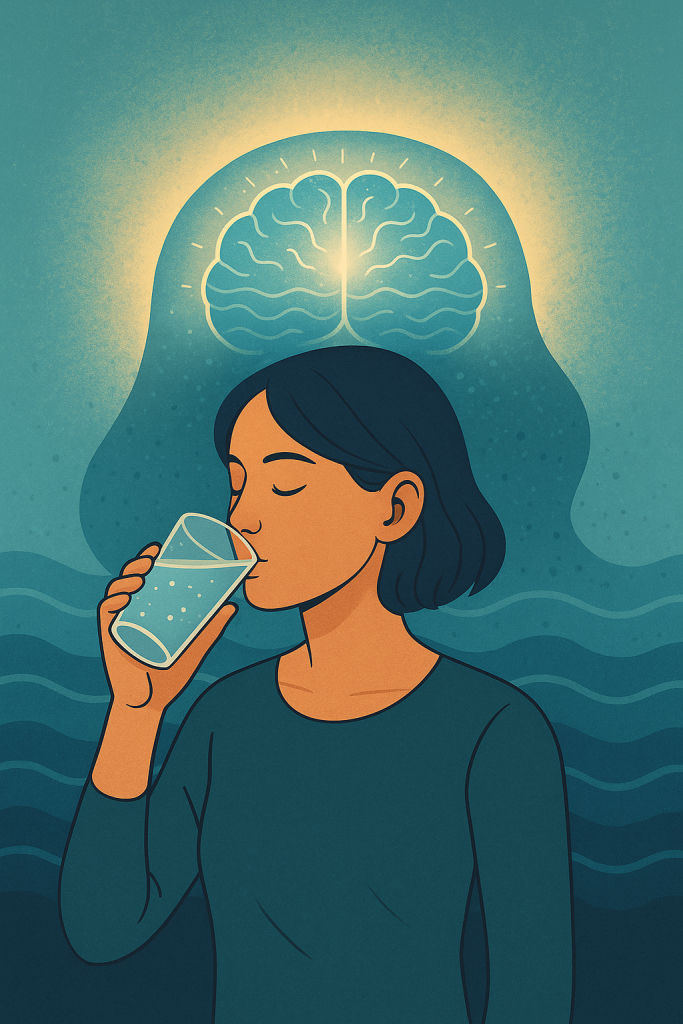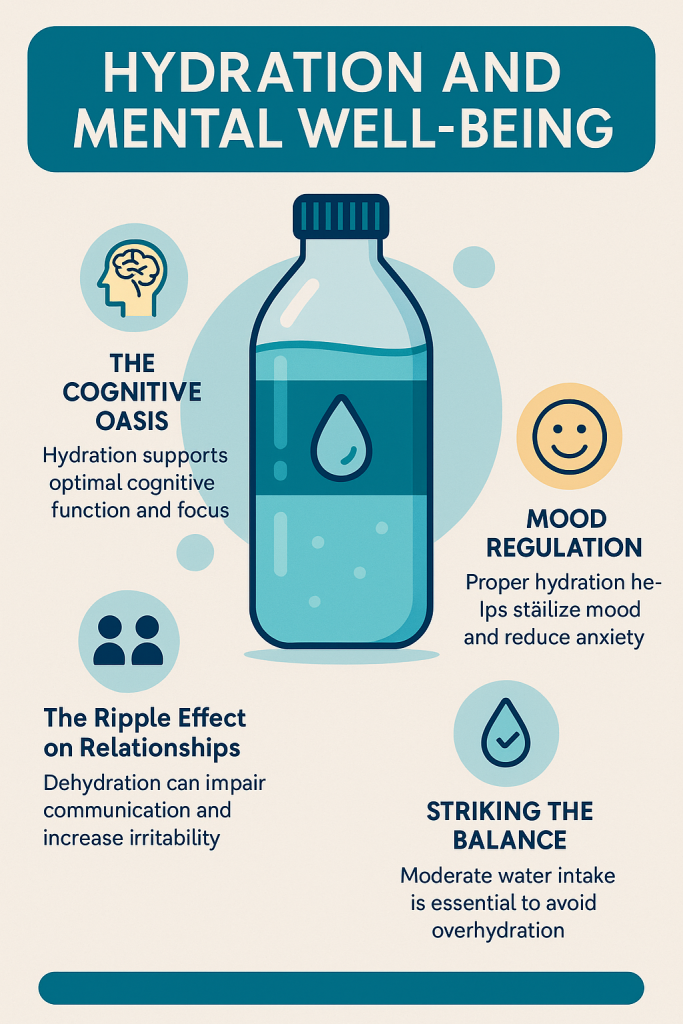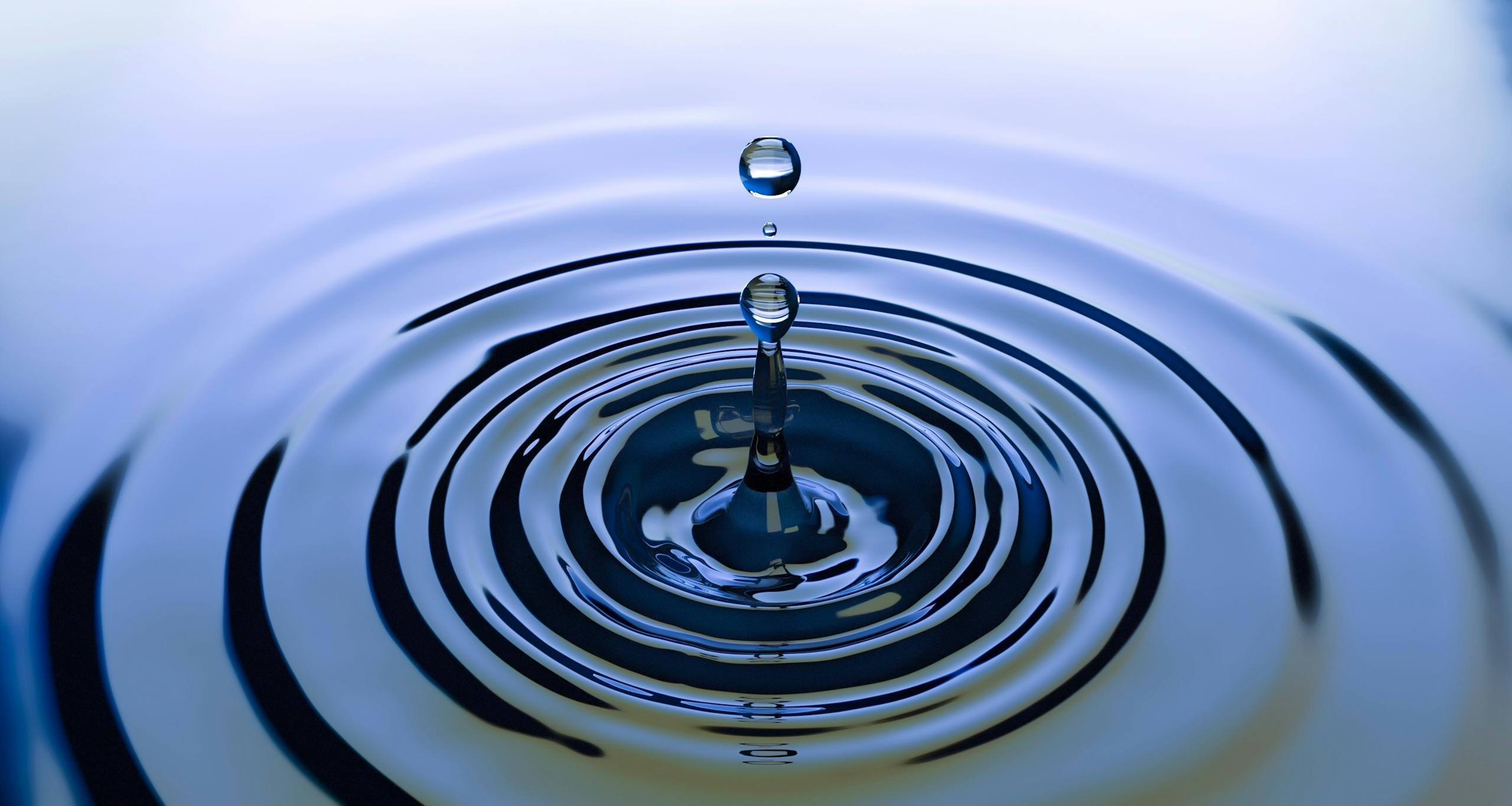Hydration and Mental Well-Being: The Crucial Connection
Reviewed by Dr. A. Iacobucci ✅
This blog emphasizes the often-overlooked link between hydration and mental health, highlighting how proper water intake can improve focus, mood stability, emotional resilience, and even relationships. It encourages readers to adopt mindful hydration as a foundational self-care habit for better mental well-being.

In the pursuit of mental well-being, we often overlook a fundamental aspect of self-care – hydration. We’ve witnessed the transformative impact that proper hydration can have on individuals’ cognitive function and emotional resilience. In this blog, we’ll explore the intricate connection between hydration and mental health and the importance of striking the right balance.
The Cognitive Oasis
Our brains are comprised of approximately 75% water, making hydration a critical factor in maintaining optimal cognitive function. Dehydration can lead to difficulties in concentration, memory lapses, and even heightened feelings of stress. As a mental health professional, I’ve observed clients experiencing notable improvements in focus and mental clarity when they prioritize adequate water intake.
Mood Regulation
Hydration is not just about quenching physical thirst – it significantly influences our emotional well-being. Dehydration has been linked to an increase in feelings of irritability and anxiety. By contrast, maintaining proper hydration levels supports the regulation of mood and can contribute to a more stable emotional state. Clients often report a noticeable reduction in stress when they integrate consistent hydration into their daily routines.
Related: Anxiety: Stop Overthinking

The Ripple Effect on Relationships
As a mental health therapist in Colorado, I’ve explored with clients how personal well-being extends into their relationships. Dehydration can impact communication skills and exacerbate tension in interpersonal dynamics. By prioritizing hydration, individuals may find themselves better equipped to navigate relationship challenges with greater emotional resilience and clarity.
Striking the Balance
While the benefits of hydration are evident, it’s crucial to strike the right balance. Consuming excessive amounts of water can lead to electrolyte imbalances, posing potential health risks. As with any aspect of self-care, moderation is key. Consulting with a healthcare professional can help tailor hydration practices to individual needs and circumstances.
In the arduous journey of mental health, seemingly simple habits can wield profound effects. Hydration is a cornerstone of self-care that should not be underestimated. As a mental health therapist, I encourage you to be mindful of your water intake and recognize the role it plays in fostering a healthy mind. By nourishing your body, you contribute to the flourishing of your mental well-being – a journey well worth undertaking.






